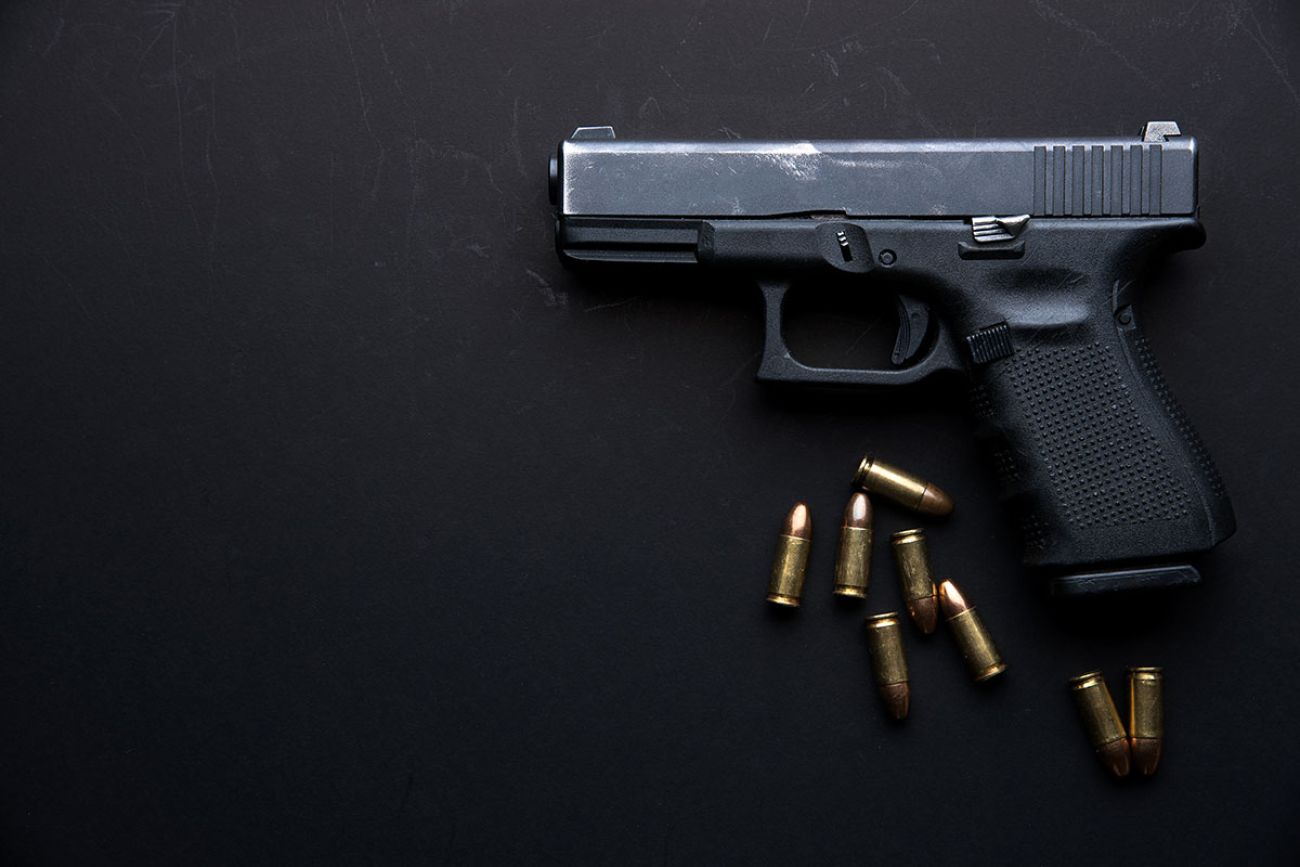Michigan Senate OKs sweeping gun control reforms after MSU shooting

- Democrats in Michigan Senate approve gun control bills, which now return to the House
- Package proposes ‘red flag’ law for gun confiscation
- Bills would create gun storage rules, universal background checks
March 23: Michigan passes ‘safe storage’ gun bill; state GOP likens it to Nazism
LANSING – Michigan’s Democratic-led Senate on Thursday approved a sweeping set of gun control bills that would create “extreme risk” confiscation, safe storage and universal background check laws.
The action, called for by Democratic Gov. Gretchen Whitmer and fiercely opposed by Republicans, comes one month after a mass shooting at Michigan State University and 15 months after one at Oxford High School.
The bills are years in the making, however. Democrats proposed similar policies in previous sessions but were unable to advance legislation until winning narrow majorities in the Legislature last fall.
Related:
- Hundreds rally for gun reform in Michigan, including Gabby Giffords
- MSU's long path ahead: What other universities have done after mass shootings
- From the gunfire at MSU, an emerging class of determined gun activists
Now in control, Democrats will “enact these laws that the public demands and safe communities require,” Sen. Jeremy Moss of Southfield, who sponsored one of the universal background check bills, promised before a series of 20-17 votes.
“Every Michigander deserves to live without fear.”
Republicans opposed the gun control bills, arguing they would limit the rights of law-abiding gun owners and do little to deter criminals. They instead proposed additional funding to help prosecutors enforce laws already on the books.
“After recent tragedies at MSU and Oxford High School, I understand the desire to do something, but passing more laws just to say you did something is terrible policy,” argued Sen. Joseph Bellino, R-Monroe.
The bills are a “serious infringement on the Second Amendment” that will “not prevent future violence because criminals and mentally incompetent people intent on doing harm don't care about the law,” Bellino said.
Democrats lamented the partisan divide on the gun legislation, pointing to recent opinion polls showing significant support for the proposed reforms, which are also backed by several national advocacy groups.
Former U.S. Rep. Gabby Giffords of Arizona, who was injured in 2011 when a gunman shot her in the head, joined Whitmer at a Michigan gun reform rally Wednesday and watched Thursday’s vote from the Senate gallery.
Giffords is a former Republican who is now a Democrat.
“There is room for people of all political backgrounds to come to the table and say gun violence is a problem we are all willing to solve,” said Sen. Kevin Hertel, D-St. Clair Shores, lead sponsor of the background check package.
“Today, we are taking that first step with a solution, one that comes on the heels of yet another tragedy.”
The Senate bills now head to the House, where Democrats last week approved their own universal background check legislation and could take up other bills as soon as next week.
Here is what the Democratic proposals would do:
‘Extreme risk’ gun confiscation orders
Senate Bills 83-86 would create an “extreme risk protection order” law allowing police to seize guns from those deemed by a judge to pose a “significant risk” of using the weapons to harm themselves or others.
The proposal is similar to “red flag” laws in 19 other states, including Florida, where a Republican governor signed the gun confiscation measure in 2018 after a teen gunman killed 17 people at Marjory Stoneman Douglas High School.
Michigan Republicans voiced strong objections to the Democratic legislation, arguing the proposed law would amount to an unconstitutional attack on due process rights.
"Red flag laws essentially attempt to enforce laws before one is even broken,” said Sen. Michelle Hoitenga, R-Manton. “While the constitution of the United States requires due process, these bills seem to simply ignore it."
Democrats dismissed those concerns, however, arguing the bills are constitutional and may have helped prevent last month’s mass shooting by providing a mechanism for the gunman’s family to request confiscation.
“These bills will absolutely make an impact, and they will save lives,” said Sen. Stephanie Chang, a Detroit Democrat who oversaw the legislation as chair of the Civil Rights, Judiciary, and Public Safety Committee.
The Senate bills would allow certain people — family members, current and ex-spouses, dating partners, police and mental health professionals — to petition a judge for an extreme risk protection order.
The judge would then have up to 24 hours to determine if there is a “preponderance of evidence” that the gun owner poses an imminent risk to themselves or others.
The judge would be required to hold a court hearing to consider evidence against the gun owner, including threats they made or signs of mental illness, but could issue the confiscation order without first notifying the owner if there is evidence that a delay would cause “imminent and irreparable harm.”
Police would deliver the extreme risk protection order to the gun owner, giving that person up to 24 hours to voluntarily surrender their weapons to avoid forced confiscation.
Gun owners who lose their weapons would be entitled to another court hearing within two weeks, or within five days if the owner is a police officer or is otherwise required to carry a gun for their job.
An extreme risk protection order would generally prohibit gun possession for up to one year, but could be rescinded after three months or extended by the court.
A person who is subject to an extreme risk protection order but is caught with a gun would face up to 93 days in jail and a $500 fine for an initial offense, up to four years in prison and a $2,000 fine for a second offense and up to five years in prison and $20,000 fine for subsequent offenses.
Safe storage
Senate Bills 79 and 80 would generally require gun owners to keep weapons in safes or other locked containers, or keep them unloaded with a trigger lock or cable lock to prevent accidental firing, if they are in a home or other building where minors under 18 could access them.
If an owner fails to properly store a gun, and that gun is used by a minor to kill themselves or others, the owner could be charged with a felony punishable by up to 15 years in prison and a $7,500 fine. If a minor uses the gun to injure someone, the owner could face a five-year felony charge.
The proposed law “could have prevented the horror that was the shooting at Oxford High School, where four children got killed, nine were injured and an entire community was wounded for life,” argued sponsoring Sen. Rosemary Bayer, D-West Bloomfield.
In that November 2021 shooting, authorities say 15-year-old Ethan Crumbley used a pistol his father had bought for him just days earlier.
All Senate Republicans opposed the mandatory gun storage proposals, arguing the legislation goes too far.
“It’s not the role of government to dictate how I store my privately-owned firearm in my privately owned home,” said Hoitenga, the Manton Republican. “These policies will only affect law-abiding gun owners.”
Two Republicans crossed the aisle to support related Democratic legislation that would exempt gun safety devices from the state’s 6 percent sales tax, a measure meant to encourage such purchases.
Senate Bills 81 and 82 would cut the price for consumers seeking to buy gun safes or locks, costing the state about $1.4 million a year in lost tax revenues, according to an analysis by the non-partisan Senate Fiscal Agency.
Earlier versions of the safe storage legislation would have also removed blanket legal immunity for gun manufacturers or dealers who make or sell a gun used in the commission of a crime.
But Democrats amended the legislation on Thursday to retain those immunity provisions, which largely mirror federal law.
Universal background checks
Senate Bills 76-78 would require background checks for all firearm purchases in Michigan by extending existing rules for pistols, eliminating a loophole for private sales of long guns like rifles and shotguns.
Expanding the current background check rules “will help us to make sure that those who should not have a gun don't get one,” including assault rifles, said Bayer, the West Bloomfield Democrat.
Hoitenga criticized the legislation, however, saying it would create hurdles for hunters to obtain long guns.
“As if criminals will take the time to fill out the application,” she said sarcastically.
Pistol buyers in Michigan must already go through a state or federal background check that is designed to flag crimes or known mental health determinations that could prohibit the purchase.
The new legislation would generally require background checks for all firearm purchases, not just pistols, and extend existing misdemeanor and felony punishments for those who buy or sell a gun illegally.
Current law requires pistol buyers to register new guns with a local law enforcement agency by submitting paperwork after the purchase. The Senate legislation would shift responsibility for pistol registration to the seller.
The legislation is similar to bills approved last week by the Michigan House.
See what new members are saying about why they donated to Bridge Michigan:
- “In order for this information to be accurate and unbiased it must be underwritten by its readers, not by special interests.” - Larry S.
- “Not many other media sources report on the topics Bridge does.” - Susan B.
- “Your journalism is outstanding and rare these days.” - Mark S.
If you want to ensure the future of nonpartisan, nonprofit Michigan journalism, please become a member today. You, too, will be asked why you donated and maybe we'll feature your quote next time!




